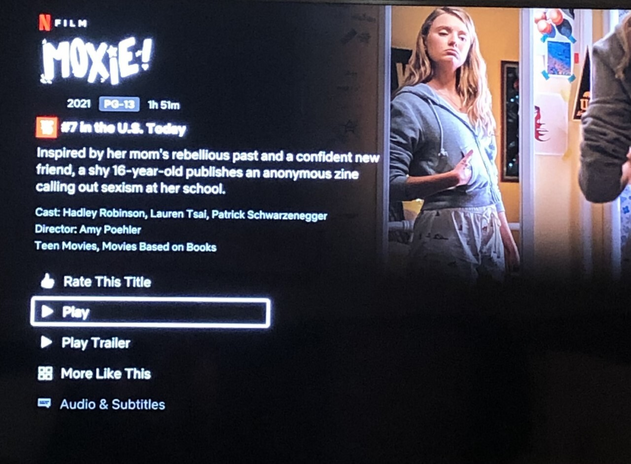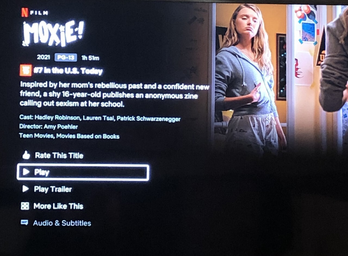I don’t think my 19 year old self is the intended audience meant for 2021’s Moxie, but somehow it’s become my latest comfort movie. Netflix films are always a hit or miss with overused actors, plots, and jokes, but Moxie seems to stand out. In this instance, I think Netflix was just the platform for Amy Poehler’s directorial genius. While the film was adapted from a novel of the same name, I admire the author’s take on generational feminism, something Amy Poehler herself portrays just as well in the film. Poehler’s comedic personality is also the perfect addition to her “cool mom” character who participated in riot grrrl feminism. Viv, Poehler’s daughter in the film, creates an anonymous feminist entity named “Moxie” with a self published zine she secretly distributes by leaving them in the girls bathroom. Moxie’s zine is peak riot grrrl feminism with magazine collages and cut out words that touch on feminist issues.
Moxie is the modern take on feminism that teenage girls need. At times scenes can be cliche, but never cringey as the film focuses on real life issues like sexual assault, institutional misogyny, and systemic sexism. Even with a female principal at the protagonist’s high school, these systemic issues are still swept under the rug. But Moxie isn’t flawless. It effortlessly touches on female empowerment and the importance of girls coming together, but choosing a white teenage girl to be the face of a high school feminist club at a high school is taking steps back. I’m disappointed, but not surprised. Moxie was written by a white author and directed by a white woman, so what could intersectional feminists expect? White feminism once again takes credit.
The film is a prime example of how advocacy takes place today. The intention is there, but the effort is not. Fear of judgement is not an excuse for the women who are physically being affected by the same old ignorance. Viv didn’t even understand the power she held as a white woman and let her friends of color take the heat. She hid behind her friends of color while they organized meetings and actively spoke against the issues that Viv was too afraid to address herself. White feminism is a dangerous approach to the many issues that have gone on for too long, but recognizing the privilege that white women have is essential.


